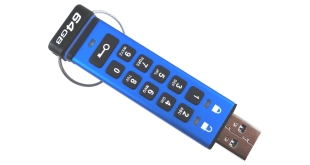CrystalDiskMark is a program to help measure the performance level of hard drives, solid state drives and external media.


We performed all of the tests multiple times to rule out inconsistencies. As you can see, the results we got are very close. Due to the nature of this kind of flash, and via the USB 3.0 interface, 4k and 4k QD32 performance is substantially worse than from a native SSD drive across a SATA connector
Our results are very close to the manufacturer claims of 170MB/s read with 185MB/s Write. This is reassuring to see.

After testing the USB 3.0 speeds, we decided to see how USB 2.0 speeds would suffer. The results are pretty much as we would expect – perfectly fine for light backup duties.

The results above are taken from an older 8GB Sandisk Cruzer Micro drive. This proves that even if you are still using USB 2.0 ports on your computer, there are some gains to be seen by moving to one of the latest drives.
Moving on to testing with ATTO Disk Benchmark. This is the very same piece of software used by MX-Technologies to test the read and write speeds … as noted on the MX-technologies web site.


With the two sets of results here, you can see slight fluctuations although the results fairly similar. Our findings here are also very close to the results CrystalDiskMark gave us. It seems the drive is fairly consistent during all of the synthetic performance tests, living up to MX-Technologies claims again.
 KitGuru KitGuru.net – Tech News | Hardware News | Hardware Reviews | IOS | Mobile | Gaming | Graphics Cards
KitGuru KitGuru.net – Tech News | Hardware News | Hardware Reviews | IOS | Mobile | Gaming | Graphics Cards



Looks like a capable little drive at a good price.